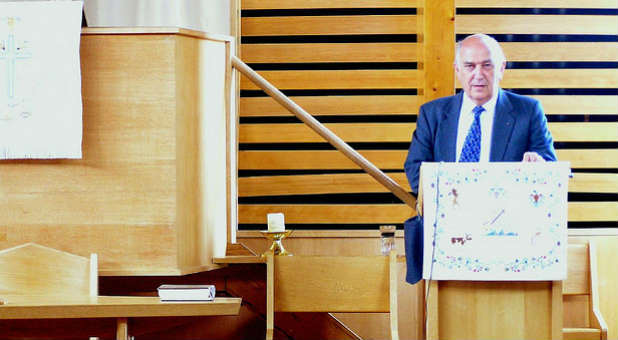Five Lies Preachers Believe About Preaching
Pastors suffer from an abundance of unsolicited advice about their preaching. Many not called to preach think themselves the most gifted to critique. Despite this, there are few church members more critical of the preaching than the one who delivers the sermon.
After I have preached my wife usually asks, “How do you think it went?” Most of my responses are in the “I guess it went alright” vein followed by, “How did you think it went?” Assurances of “it was great” or “that was one of the best sermons you’ve ever preached” are mostly doubted. I know the times I’ve lost my place in the notes, become mentally distracted, and realized the second point had too much or too little content. My train of thought has refused to leave the station, or derailed once it did.
A pastor’s normal excessive scrutiny about his preaching is bad enough, but it is made worse when these five lies are believed.
1. If I just preach the Bible my church will grow. Churches grow or don’t grow for any number of reasons. Good location, good organization, an overwhelming move of the Spirit of God or a charismatic leader are some possible reasons. Churches almost never grow solely because of the preaching. Conversely, churches almost never stay small or plateau as a result of the preaching.
2. If I study and pray enough I will always get God’s mind on the sermon text. We all approach the Scripture with certain biases. These are not always erroneous, but they can cause the preacher to mistake an interpretation or application. I remember a well-known pastor saying: “One Sunday night I preached a sermon on why the Antichrist has to be a Jew. After the service a member graciously approached me with a few Scriptures. The next Sunday night I preached on why the Antichrist has to be a Gentile.” There is a reason Paul calls us “jars of clay.” The treasure is priceless and eternal; the container is aging, chipped and fading every day. The Word has enough power to overcome the frailty of the one delivering it. When you mess up a text, admit it and move on. If you have not landed on particular interpretation out of three, preach them all and let the Spirit do His work.
3. There is a single best way to preach. Whether a pastor preaches expositorily or topically is not typically the reason a church grows. It is humorous how often I see a pastor advocate for expository preaching as a key to church growth when his own church is not growing. Both history and our contemporary setting provide numerous examples of Christians growing in the faith, and churches increasing in number under different styles of preaching. I prefer expository for a number of reasons, but am not inclined to limit the work of God to a single style. Preach with confidence from the gift(s) God has given you.
4. I’m the worst preacher in the world. I don’t know anyone who thinks themselves the best, and I hope no one believes about themselves the worst. Every pastor has a bad day, an off Sunday. Chances are on any given Sunday all of us are the worst preacher in the world. We are fallible. We all have grand slams in the study that turn into strike outs in the pulpit. But most neither hit it out of the park nor foul it into the stands week after week. We do well to remember that a string of singles and doubles scores a lot of runs too.
5. A lack of audible feedback equals a lack of hearing. Congregations are different. Some say “Amen” or “Preach it” quite a lot. Most pastors love this. For some communicators, audible feedback is the connective tissue of receptivity. But not all congregations are comprised thus. Some are more reflective. Among our people are auditory, visual and experiential learners. Attention is given in different ways.
I rely on body language for feedback more than amens. Is anyone asleep? Are people checking their watches? Has a conversation broken out on the fifth row? Has anyone closed their Bible and moved on to Facebook?
Conversely, are eyes facing forward and are they alert? Are notes being taken? Are their nods or head shakes at appropriate places? Are students engaged? One of our campuses has light dimmers for the auditorium. Our lighting techs always make sure the lights are bright enough for me to get the visual cues I need to read as much body language as possible.
Pastor, neither exalt yourself more highly than you ought, nor think more badly of your preaching than you should. You may not be as good as you wish, but you probably are not as bad as you fear. Work to improve the craft of preaching, and trust God for His blessing on it. Faithfully teach the Word, for it has the power, and do not believe enemy lies that will haunt your soul and hollow your preaching.
For the original article, visit churchleaders.com
















































